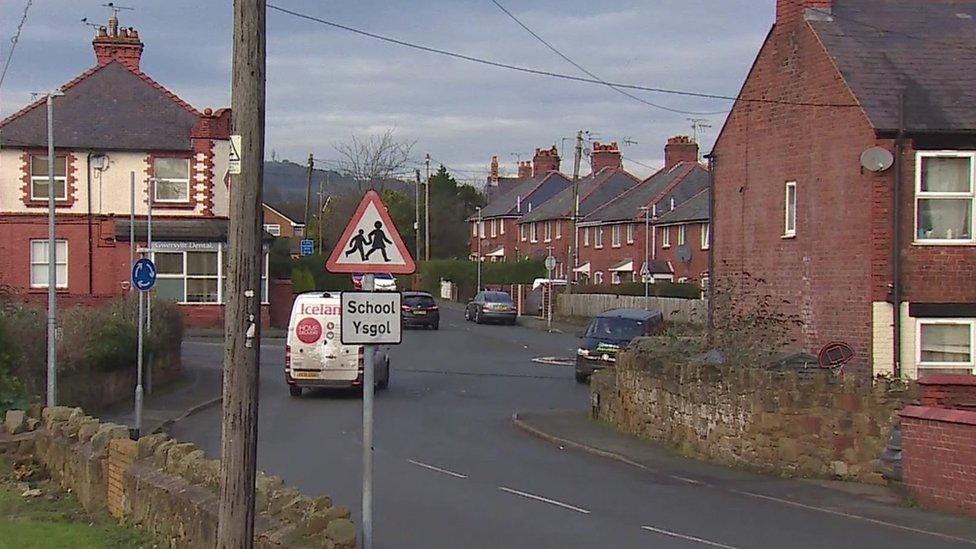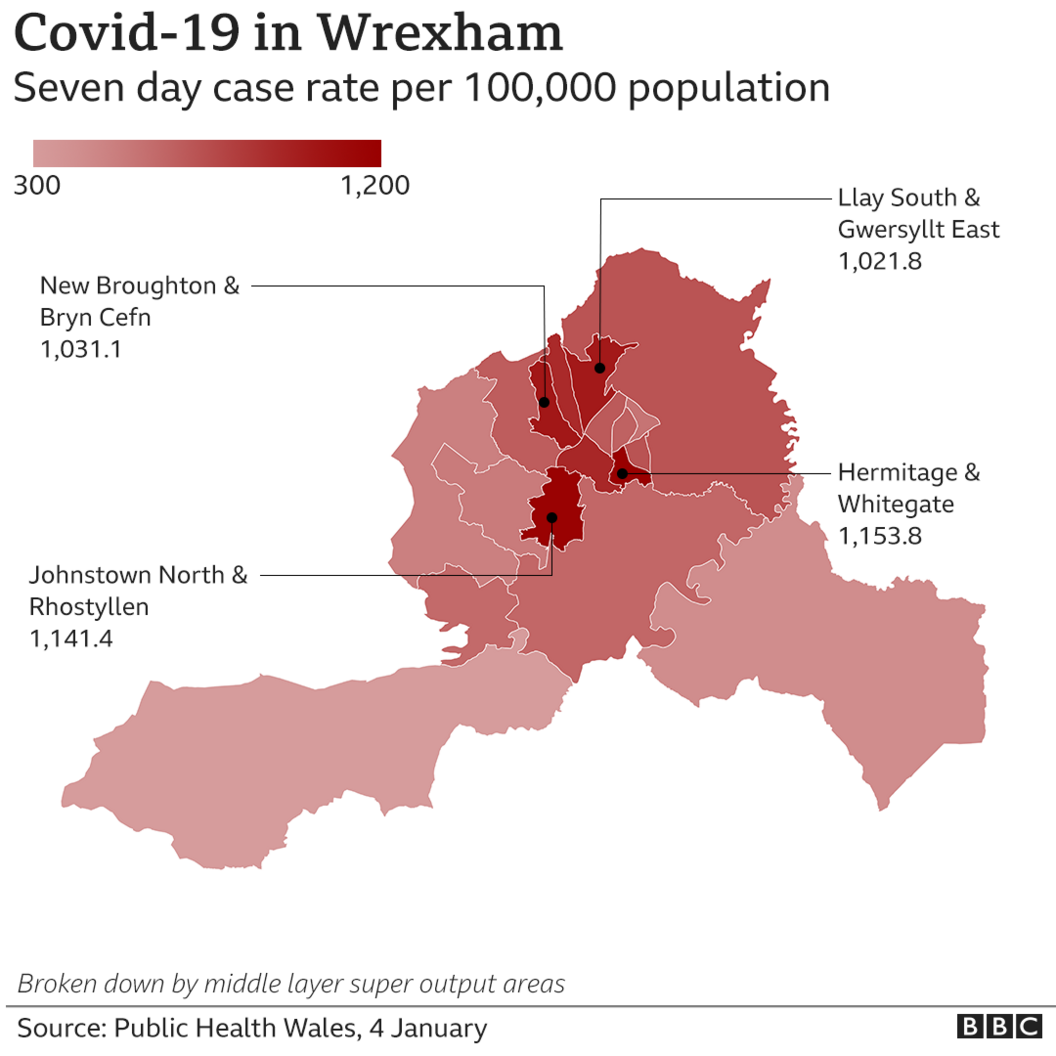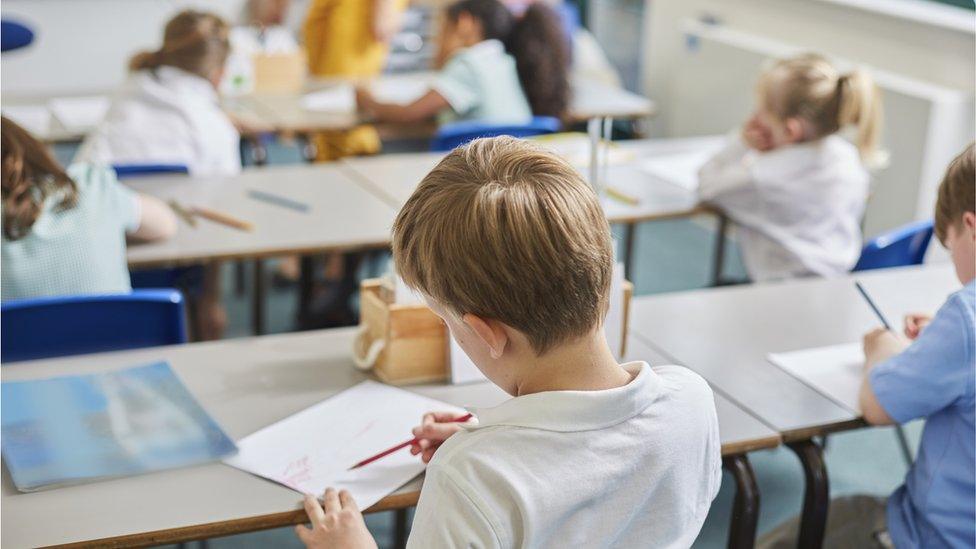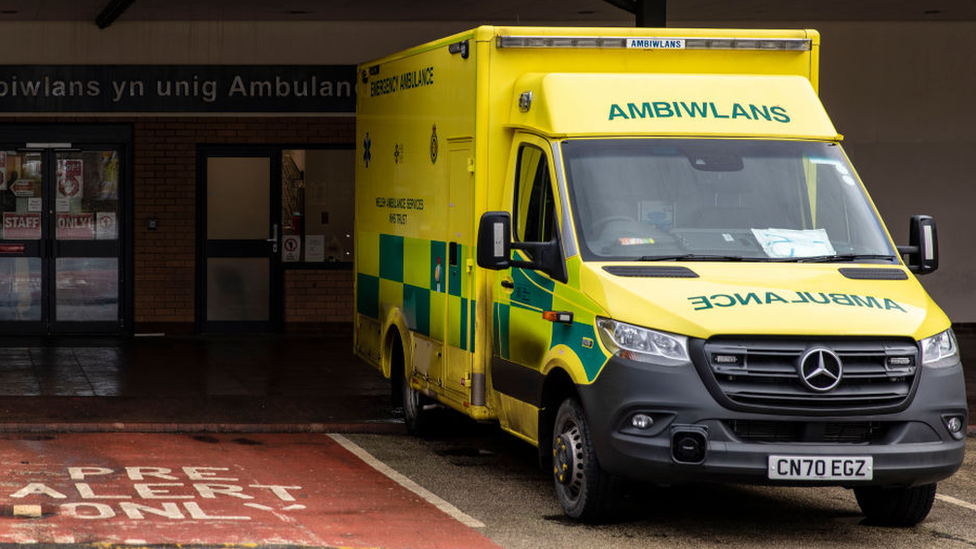Covid: New variant blamed on Wrexham transmission spike
- Published

Gwersyllt in Wrexham has had 55 cases in the last week - one of the highest in Wales for the size of its population
A spike in coronavirus cases in parts of north east Wales is being caused by a newer "faster-spreading" variant, the health minister has said.
Wrexham has the second highest covid case rate in Wales, with 735.5 cases per 100,000 of the population in the last seven days.
As case rates rise in the region, there are calls for mass testing.
Mr Gething said those who had symptoms must self-isolate and get tested immediately.
During the Welsh Government coronavirus briefing, Mr Gething said there was a danger that the new variant, which is more "aggressive and faster spreading", could become the more dominant version of the virus.
Wrexham now has the second highest case rate in Wales, behind Bridgend, where the case rate now stands at 907.2 per 100,000 of the population, according to Public Health Wales figures.
In many other parts of Wales, case rates have fallen slightly in recent days, with the Wales average 451.1 per 100,000 in the last seven days.
But Mr Gething said case rates in parts of north east Wales were continuing to rise.
This includes in Flintshire where the rate now stands at 517.6 and Denbighshire (345.9), both along with Wrexham reporting their highest case rates yet.

Two Wrexham councillors called for mass testing - as seen in parts of the south Wales Valleys - to be introduced as cases continue to rise.
Councillor Gwenfair Jones said: "Whether people are not listening to the guidance or the new strain is rampant I'm not sure, but we need to get to grips with it soon.
"I think with mass testing people would be able to see that they have actually got it without the symptoms."
But Wrexham council said mass testing would be carried out in care homes and schools, it had no plans to offer it to the wider community.


Wales is currently under the highest level of lockdown measures - level four - with people being told to stay at home, and not to travel, apart from essential reasons.
Dr Sara Bodey, chair of North Wales Local Medical Committee, said the increased case rate could be due to people meeting up with others during the festive period.
"We've just had the festive season and there's been some relaxation of restrictions around that and there's been a temptation to go out more to shopping centres and places like that," she said.
"A lot of the increase in spread is likely to be related to that as well as to a new variant."
Mr Gething said while the majority of people were sticking to the rules, he urged people to stick to the law, and "do the right thing".
"The pandemic is still here, we all need to live our lives in a way that reduces contact...because that's how we will keep more of us alive and well to be able to recover together."
- Published4 January 2021

- Published8 February 2021
